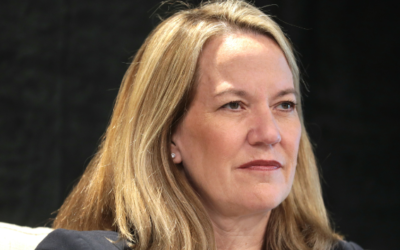By Matthew Holloway |
Earlier this week, Republican Congressman Abe Hamadeh’s (R-AZ08) social media team offered words of gratitude and even praise for Laurie Roberts, an opinion columnist for the Arizona Republic. The exhange came in regard to the framing of her recent op-ed entitled “Rep. Abe Hamadeh says no Medicaid cuts? He’s not fooling anyone.” According to Roberts, she incorrectly wrote in a post to X that the One Big Beautiful Bill Act contains cuts to Medicare, rather than reforming Medicaid.
Addressing the erroneous post, Roberts wrote a new post to X and commented, “Deleted my earlier tweet as I mistakenly said the cuts were to Medicare. Don’t want to start a panic, so I deleted it. The cuts are to Medicaid, as the column correctly points out.”
Abe Hamadeh War Room, the Rapid Response account for the Congressman’s office, highlighted Roberts’ correction writing, “Thank you for showing integrity. In this case and correcting your mistake, Laurie. Unfortunately, the Democrats have created panic for months now by conflating these two very important issues. The last thing we would want is to scare people.”
As explained by the White House, “Medicare has not been touched in this bill— absolutely nothing in the bill reduces spending on Medicare benefits. This legislation does not make a single cut to welfare programs—it safeguards and protects these programs for all eligible Americans.”
The White House further noted that H.R. 1, the One Big Beautiful Bill Act (OBBA), does not in fact make cuts to Medicaid either.
“As the President has said numerous times, there will be no cuts to Medicaid. The One Big Beautiful Bill protects and strengthens Medicaid for those who rely on it—pregnant women, children, seniors, people with disabilities, and low-income families—while eliminating waste, fraud, and abuse,” the White House wrote. “The One Big Beautiful Bill removes illegal aliens, enforces work requirements, and protects Medicaid for the truly vulnerable.”
According to the latest congressional summary of the bill, the Medicaid reform in the OBBA falls into four main categories:
Reducing Fraud and Improving Enrollment Processes
- Centers for Medicare & Medicaid Services (CMS) are to create a centralized system by 2027 for states to detect multi-state Medicaid/CHIP enrollment; states must verify addresses and report Social Security numbers monthly by FY2030; funding provided for system setup and maintenance.
- States must check Social Security Administration’s Death Master File quarterly starting 2028 to identify deceased Medicaid enrollees.
- States to verify provider termination from Medicare, other state Medicaid, or CHIP during enrollment/reenrollment starting 2028, with monthly checks thereafter.
- States to check provider death status via Death Master File during enrollment/reenrollment starting 2028, with quarterly checks thereafter.
- States to redetermine Medicaid expansion population eligibility every six months starting December 31, 2026.
- 10% reduction in enhanced federal matching rate starting FY2028 for states providing comprehensive health benefits to non-lawfully residing individuals (except children/pregnant women).
Preventing Wasteful Spending
- CMS to survey pharmacies through FY2033 for Medicaid drug pricing; non-participating pharmacies face penalties; OIG to study survey results with FY2026 funding.
- Mandates pass-through pricing and bans spread-pricing for Medicaid pharmacy benefit manager contracts.
- Prohibits Medicaid/CHIP federal payments for gender transition procedures, with exceptions for minors with parental consent for specific medical conditions.
- Bars federal Medicaid payments for 10 years to nonprofit essential community providers primarily offering family planning/abortions (beyond rape/incest/life-threatening cases) if they received over $1M in Medicaid payments in FY2024.
Stopping Abusive Financing Practices
- Non-expansion states as of March 11, 2021, must expand Medicaid by January 1, 2026, to receive enhanced federal matching rate.
- Prohibits federal matching for revenue from new or increased Medicaid provider taxes.
- Limits state-directed payments under Medicaid managed care to Medicare rates (100% for expansion states, 110% for others) through FY2033.
Increasing Personal Accountability (Work Requirements)
- Medicaid expansion population must meet 80-hour monthly work/community service/education requirements starting December 31, 2026; exemptions for medical conditions or dependent children; FY2026 funding for implementation.
- Cost-sharing required for Medicaid expansion population with income above poverty line starting FY2029; max $35 per service, 5% of family income; excludes certain services; providers may require payment upfront.
Under the OBB, Medicaid isn’t cut but is in fact mandated to expand for “non-expansion states,” to receive enhanced federally matched funding. The only individuals and families purportedly “cut” from Medicaid would be those who fail to meet the program’s work/community service/education requirements and are not exempted by medical conditions or dependent children or whose income exceeds the program’s limitations and “non-lawfully residing individuals.”
Matthew Holloway is a senior reporter for AZ Free News. Follow him on X for his latest stories, or email tips to Matthew@azfreenews.com.








